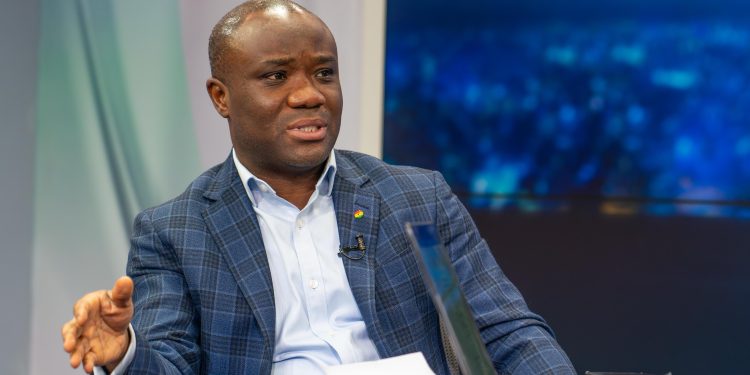Early Life and Education
Born as Charles Kwadwo Fosu on September 29, 1964, in Nsuta near Mampong in the Ashanti Region of Ghana, Daddy Lumba would go on to become one of the most influential names in Ghanaian music history.
He was the second of three children born to Johnson Kwadwo Fosuh and Comfort Gyamfi (Ama Saah) both of whom were schoolteachers. His early exposure to music was influenced not just by his environment, but also by his strong church and academic upbringing.
Lumba began his education in Nsuta, later attending Juaben Senior High School, where he rose to become the choir leader between 1983 and 1984. It was there he composed a song titled “Lumba Lumba”, a performance that would earn him his now-iconic nickname Daddy Lumba.
Musical Beginnings and the Lumba Brothers
His professional music journey began after he migrated to Germany, where he teamed up with Ernest Nana Acheampong to form the legendary duo Lumba Brothers. Together, they recorded their first album “Yɛɛyɛ Aka Akwantuo Mu” in 1986. However, due to financial constraints, the album wasn’t released until 1989 but it quickly established the duo as musical forces.
Their blend of heartfelt lyrics, contemporary rhythms, and Highlife foundations won them a passionate fanbase both in Ghana and abroad.
Solo Career and Signature Hits
In 1990, Daddy Lumba branched out as a solo artist with the album “Obi Ate Me So Bo”, instantly setting himself apart with his signature voice and emotionally charged songwriting.
Over the next three decades, he released over 33 studio albums, some of which became national anthems. Among his standout works:
• Aben Wo Ha (1998) – A controversial and timeless classic that won Song of the Year at the Ghana Music Awards.
• Yentie Obiaa (2014) – A bold, rebellious anthem that was embraced by both youth and political figures.
• Theresa – A deeply personal ballad dedicated to his ex-girlfriend, still resonating across generations.
• Ofon Na Edi Asem Fo (2022) – His most recent release, reaffirming his relevance in a new era of music.
Lumba’s sound evolved across decades from gospel and highlife to afro-fusion but his lyrical depth and distinctive delivery remained constant.
Mentorship and Industry Influence
Beyond his personal success, Daddy Lumba was a powerful mentor and talent builder. His 1999 collaboration with Ofori Amponsah on the album “Wo Ho Kyere” launched Amponsah into the spotlight.
He also played a guiding role in the careers of several other artists including:
• Felix Owusu
• Afia Ampofowaa
• Kwabena Sunkwa
• Selina Orleans
• Borax
• Ateaa Tina
He wasn’t just creating hits, he was shaping the next generation of Highlife.
Entrepreneurship and Achievements
In September 2022, Daddy Lumba unveiled his own radio station: DLFM (106.9 MHz). Broadcasting in Twi and focused on Ghanaian music and culture, DLFM became a hub for entertainment, memories, and cultural pride.
Throughout his career, he amassed a long list of awards, including:
• Artist of the Year, Best Album, and Most Popular Song at the 2000 Ghana Music Awards.
• Multiple awards in 2003 across various categories.
• Honored as an Icon and Legend at the 2018 EMY Africa Awards.
In March 2025, his song “Mpempem Do Me” was chosen as part of King Charles III’s Commonwealth Day playlist, recognizing Lumba’s international influence and artistry.
Family and Net Worth
Daddy Lumba kept his personal life largely private, but it is known he fathered seven children across two marriages:
• Four with his first wife, Akosua Serwaa
• Three with his second wife, Maame Broni
As of January 2025, his estimated net worth stood at $16 million, reflecting decades of income from album sales, concerts, royalties, endorsement deals, and investments such as DLFM.
Final Days and Passing
On July 26, 2025, Daddy Lumba passed away at the age of 60, at The Bank Hospital in Cantonments, Accra, after a brief illness. The news shook the entire nation.
His radio station, DLFM, described him as “a cultural giant whose voice carried generations”. Fans flooded social media with tributes, replaying his timeless melodies that had become the soundtrack of their lives.
Legacy and Cultural Impact
Daddy Lumba wasn’t just a musician he was a movement. His ability to seamlessly blend gospel, love, highlife, and afro-fusion created a cross-generational sound that defined the Ghanaian music experience.
His influence remains deeply etched into the foundation of Ghana’s music industry not just for his powerful discography, but for his mentorship, his innovation, and his unmatched consistency.
He proved that music wasn’t just about rhythm and lyrics, but about identity, truth, and soul.
By Regina Bless
July 28, 2025
























































![[FREE FREE MONEY] Predict and Win a Guaranteed GH¢200 From Us EVERY WEEK](https://wordpress.ghanatalksradio.com/wp-content/uploads/2022/02/Predict-and-Win-Final-09-03-2021-218x150.jpg)
![[Predict & Win – 8th/Oct.] WIN A Guaranteed ¢200 From Us This Week](https://wordpress.ghanatalksradio.com/wp-content/uploads/2021/10/maxresdefault-16-218x150.jpg)
![[Predict & Win – 2nd] WIN A Guaranteed ¢200 From Us This Week](https://wordpress.ghanatalksradio.com/wp-content/uploads/2021/09/maxresdefault-50-218x150.jpg)
![[Predict & Win – 25th] WIN A Guaranteed ¢200 From Us This Week](https://wordpress.ghanatalksradio.com/wp-content/uploads/2021/09/maxresdefault-36-218x150.jpg)
![[Predict & Win – 18th] WIN A Guaranteed ¢200 From Us This Week](https://wordpress.ghanatalksradio.com/wp-content/uploads/2021/09/maxresdefault-23-218x150.jpg)










![[National cathedral] See full list of churches that have contributed since 2018](https://wordpress.ghanatalksradio.com/wp-content/uploads/2020/09/Ghana-National-Cathedral-GhanaTalksRadio-100x70.jpg)



![[NAIJA RENDEZVOUS] Tinubu now reportedly wears catheter bag for urine; Kidnappers kill lawmaker’s son; BBNaija Finale Sunday; more](https://wordpress.ghanatalksradio.com/wp-content/uploads/2022/10/maxresdefault-100x70.jpg)